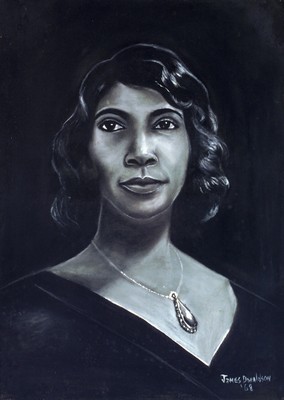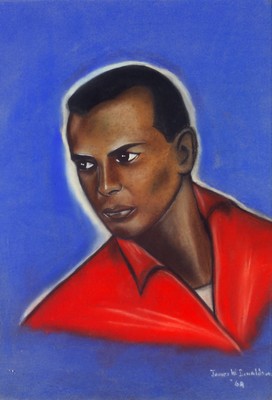In 1968, artist James Donaldson produced a series of artworks depicting important figures in the history of Civil Rights in the United States. This portrait of singer Marian Anderson joined Donaldson’s representations of Langston Hughes, Sojourner Truth, W. E. B Du Bois, and others who helped inspire mid-century Civil Rights activists.
An acclaimed singer, Anderson had already gained an international reputation in 1939 when she planned to perform at Constitution Hall in Washington, D.C. However, following a "white performers only" policy, the Daughters of the American Revolution, who owned the hall, refused to allow Anderson’s concert. Following a national outcry—and with support from First Lady Eleanor Roosevelt—Anderson performed her concert from the steps of the Lincoln Memorial in front of a desegregated crowd of 75,000 people. In 1963, Anderson again performed in front of the Lincoln Memorial during the March on Washington.
Attesting to the significance of celebrities in the fight for racial equality, Donaldson also produced portraits of singer/actors Harry Belafonte and Lena Horne. An outspoken Civil Rights activist and close confidant of Martin Luther King, Jr., Belafonte organized demonstrations, raised money for Civil Rights organizations, and contributed his personal funds to efforts including the 1963 Birmingham campaign. Horne famously refused film roles that played into stereotypes of Black women and used her celebrity status to raise money for Civil Rights organizations like the Southern Christian Leadership Conference (SCLC) and the Student Nonviolent Coordinating Committee (SNCC).




